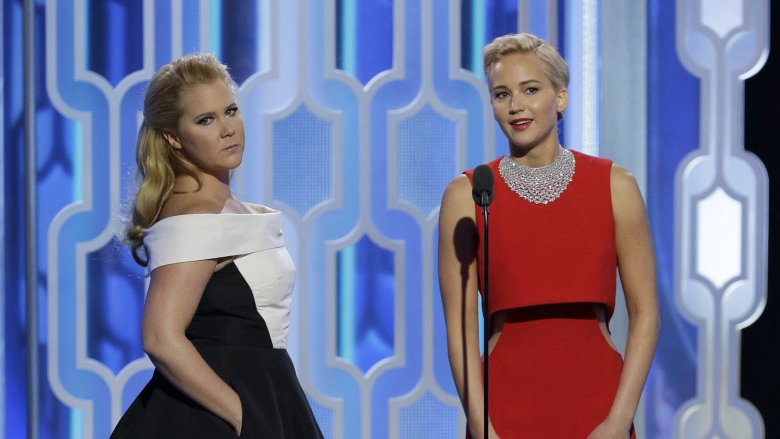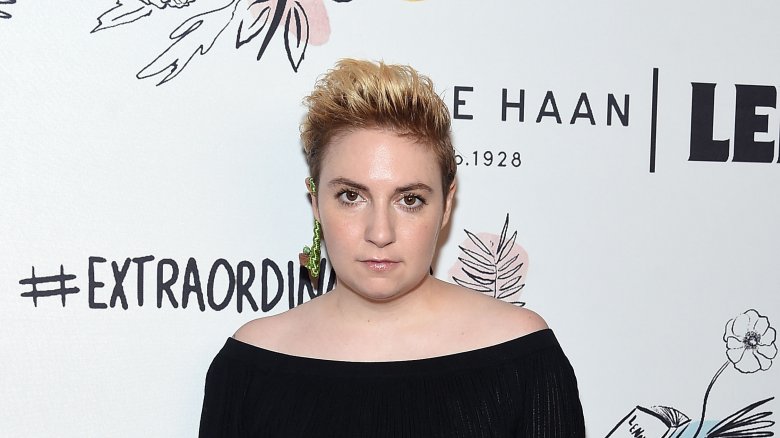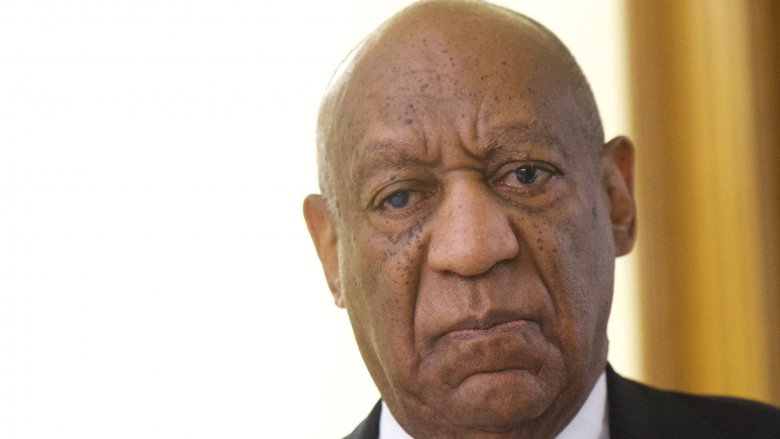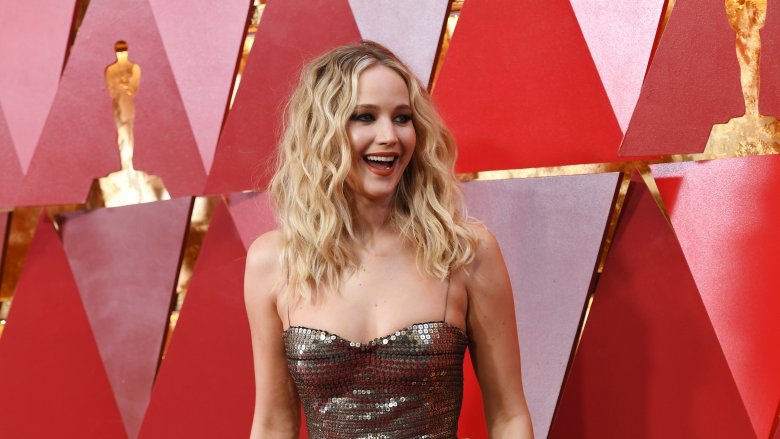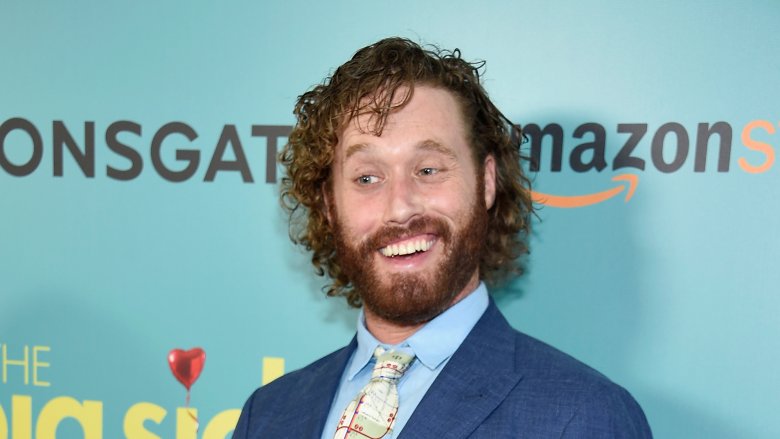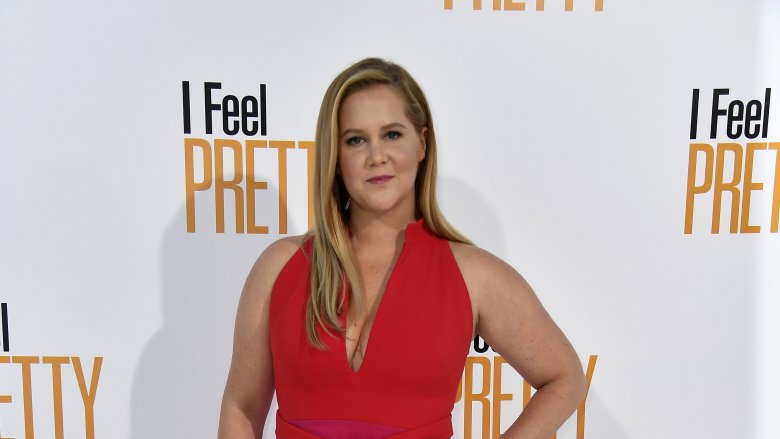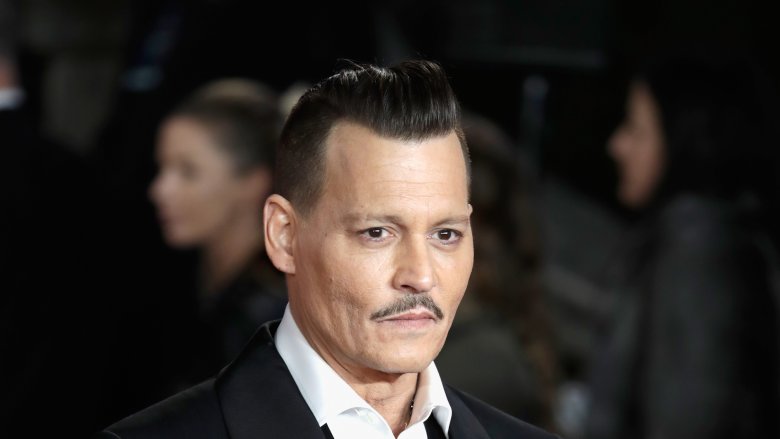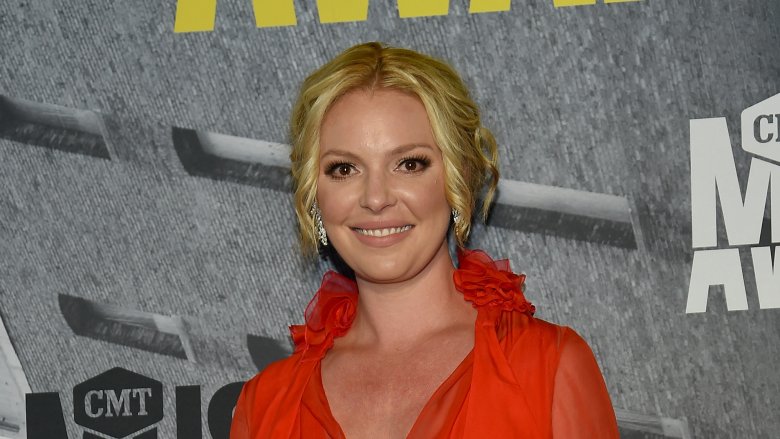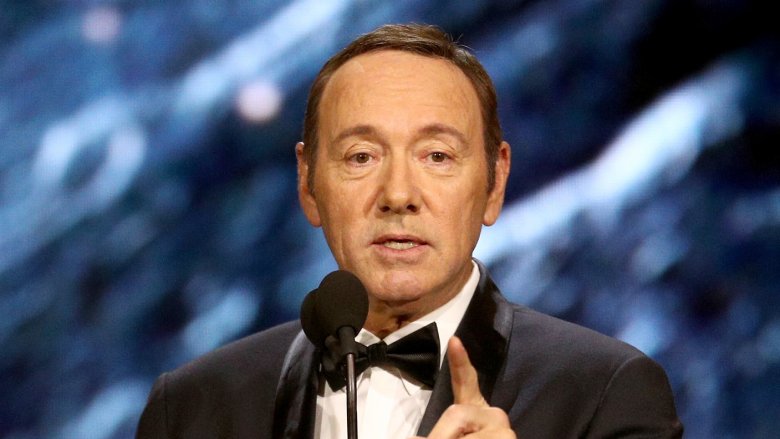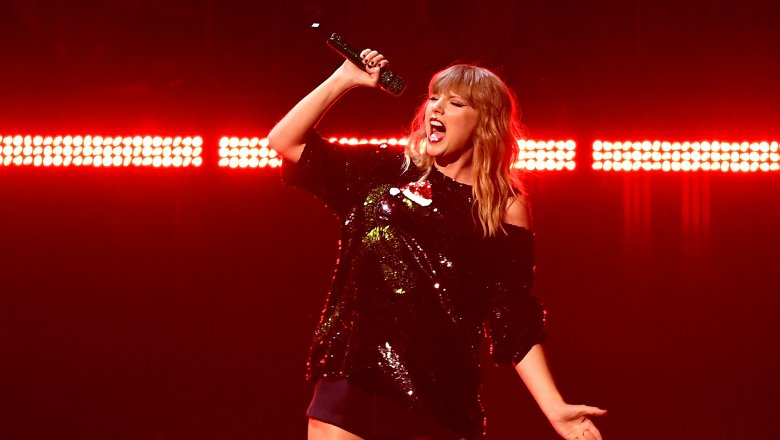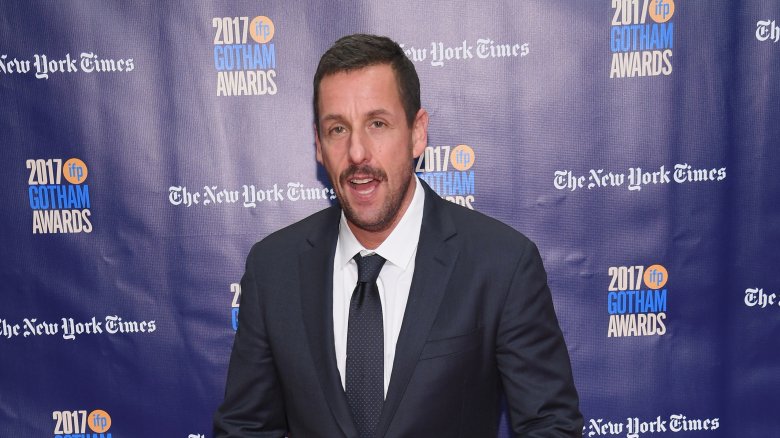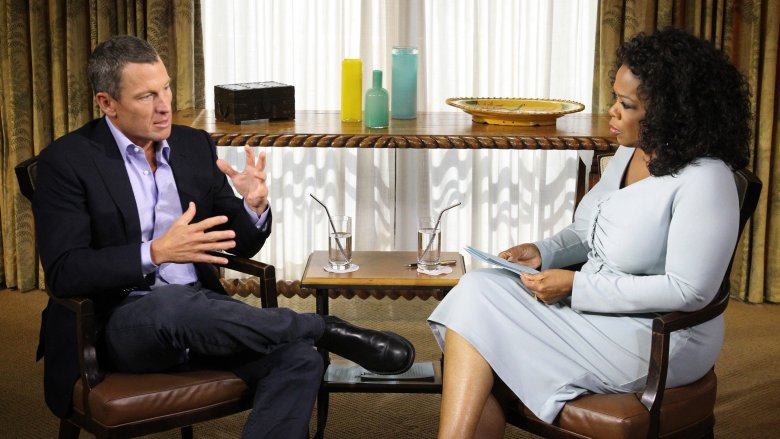Hated Celebs Everyone Used To Love
We live in a society that treats celebrities like gods. James Houran, a psychologist who deals with this cultural phenomenon, calls it "celebrity worship syndrome." But this concept is not necessarily new. According to Houran (via ABC News), "Celebrity worship has probably existed as long as there have been famous people. But it has probably only become as intense as it is given the technological advances that allow us to create societies, market them to a worldwide audience, and share information about them."
While this all sounds great for celebrities, there is an ugly side to the obsession. Sure, for some stars, the deeper we delve into their lives the more we love them. But, sometimes, a celebrity's true colors turn up in shades and hues that we despise.
Here are the stars who rode the roller coaster of fame from the top to the bottom. Some betrayed our trust, and others embarrassed us, but each of these celebrities started out as gods and ended up devils. Apparently, Hell hath no fury like a fanbase scorned.
Lena Dunham apologizes ... and apologizes again
Lena Dunham's roller coaster life in the spotlight took her from one of Time's "100 most influential people in the world" in 2013 to a public pariah in 2018. Early on, Dunham hit show business at full speed with her award-winning film, Tiny Furniture, and her critical darling show, Girls. It seemed then that she had the Midas touch, but with the accolades also came controversy.
In the beginning, some saw troublesome areas in Dunham's writing. The Daily Beast pointed out the "whitewashing" in Girls, and The New Yorker highlighted its "problematic racial representations." Dunham answered her critics, explaining that she told stories from her life and "wasn't able to speak to" the African-American experience. But controversy wasn't yet finished with Dunham.
On social media, Dunham became a provocative personality, often making inflammatory posts and then apologizing afterward. Her 2015 memoir, Not That Kind of Girl, created more problems for Dunham. According to The Guardian, her detailed account of an assault she experienced nearly led to legal action when an innocent man matched the description of the alleged attacker. Critics also questioned another book passage involving Dunham and her little sister which some interpreted as sexual assault. But Dunham hit rock bottom when she doubted actress Aurora Perrineau's #MeToo story. For an apparent staunch supporter of the movement like Dunham to downplay another woman's story, seemingly because it targeted one of her friends, led to extreme backlash. Yes. She apologized for that, too.
Bill Cosby no longer America's dad
For many years, Bill Cosby carried the unofficial title of "America's dad." A role model in show business and an influence for entire generations of comedians, Cosby's stardom was so powerful and so potent that even sexual assault claims aimed at him in 2005 were incapable of derailing his celebrity. In fact, eight years later, his first comedy special in 30 years, Bill Cosby: Far From Finished, opened to rave reviews. It was only when Hannibal Buress made a simple joke about Cosby that everything changed.
In 2014, a viral video showing Buress on stage joking about Cosby's scandalous history made its rounds. In the video, Buress encourages the audience to go home and Google "Bill Cosby rape." Though Buress later said on The Howard Stern Show that he told a version of that joke for about six months prior, the viral video is what got everyone talking about Cosby.
Shortly afterward, Barbara Bowman, one of Cosby's alleged victims, told her story to The Daily Mail and then published a detailed account of the events with The Washington Post, with more women following. After around 60 accusers spoke up against Cosby, the world finally listened. Though Cosby settled out of court in 2005 and the 2017 case ended in a hung jury, the 2018 trial was different — not only because of the guilty verdict, but because the public will likely never forgive him.
The unrelatable Jennifer Lawrence
While it's difficult to identify when the public perception of Jennifer Lawrence changed, it's clear that Hollywood's former "it" girl is "it" no longer. In 2010, Lawrence burst onto the movie scene with a magnificent performance in Winter's Bone, one that earned her an Oscar nomination. Then, despite some debate, Lawrence landed the part of Katniss Everdeen in The Hunger Games franchise. She also became the one of the youngest winners for Best Actress at the Academy Awards, one of Time's "100 Most Influential People" in 2013, and, according to Forbes, the highest-paid actress in 2015 and 2016.
Lawrence's grounded and relatable personality enthralled fans. When she railed against Hollywood's body image issues and spoke humbly about her abilities and importance as an actor, she did it with a lovable and quirky humor. Somewhere along the line, however, fans stopped relating to Lawrence.
At the 2016 Golden Globes, when Lawrence jokingly chastised a reporter, her critics felt she went beyond her "usual quirky self." When Joanna Lumley introduced her as "the hottest actress on the planet" at the 2018 BAFTAs, Lawrence's joking response, "that was a bit much, but thank you Joanna," was criticized as "rude." Regardless of the reason for perception shift, it has shifted. And, now that fans are no longer letting Lawrence's normal girl persona slide, she might want to shift as well.
Becoming a villain with TJ Miller
At the beginning of 2017, T.J. Miller was on top of the world. He played the fan-favorite character, Erlich Bachman, on Silicon Valley, Weasel in the Deadpool franchise, and landed his own HBO special, Meticulously Ridiculous. He couldn't miss. But from such great heights, any career changes or moves look a lot like falling. For Miller, the fall began when HBO announced (via The Hollywood Reporter) that the producers of Silicon Valley and the comedian "mutually agreed" to end their partnership.
But after details of the split came out, such as creator Mike Judge suggesting that Miller "didn't want to do the show anymore," fans questioned Miller's motives. When he gave his side of the story to THR, Miller made his exit even more controversial. He slammed the show's writing, took jabs at producer Alec Berg, and even suggested that co-star Thomas Middleditch hungered "to be the star of the show." But whatever friction existed on the set of Silicon Valley paled in comparison to what was to come for Miller.
Shortly after his antagonistic interview, Miller ruffled more feathers by telling Vulture that females are "taught to suppress their sense of humor during their formative years." That didn't go over well. Later, a woman from Miller's past accused him of sexual assault. Despite his denial, Miller then doubled down on controversy when he allegedly submitted a fake bomb threat on an Amtrak train. For this, police arrested him in April of 2018, and he now faces serious jail time.
Amy Schumer refuses to change
Few fans knew Amy Schumer prior to Inside Amy Schumer, which ran from 2013 to 2016. Through that Emmy-winning show, Schumer proved herself to be one of the hottest up-and-coming comedians on television. Then, as Variety reported, Schumer catapulted herself into A-list territory with the enormous success of her film, Trainwreck, in 2015.
But in early 2016, Schumer's positive press turned negative. Recorded by Refinery29, Schumer's trouble began when comedian Wendy Liebman accused her of stealing jokes. This started a chain reaction which led Tammy Pescatelli and Kathleen Madigan to accuse Schumer of joke theft as well. While the comedians eventually settled their conflict, the seed was planted, and the internet doesn't forget.
Videos connecting Schumer's material to other similar jokes soon began popping up online. One, a 26-minute compilation that spanned Schumer's entire career, went viral. Then, when Netflix released Schumer's, The Leather Special, fans met it with a flurry of one-star ratings. Schumer blamed "alt-right organized trolls" for tanking the ratings, but others, such as the Los Angeles Times, pointed to the comedian's monotonous "raunch."
But Schumer is unabashedly committed to her brand of comedy. In her newest film, I Feel Pretty, she bares her scars for viewers once again. While the film's ratings are underwhelming, some critics, like Amy Nicholson of Rolling Stone, applaud Schumer for proudly and subversively showing audiences a side of her that many want covered up.
What's eating Johnny Depp?
While Johnny Depp remains one Hollywood's biggest names, his star doesn't shine as brightly as it once did. His lackluster film resume throughout 2015 and 2016 led Forbes to name Depp "Hollywood's Most Overpaid Actor" two years in a row. Yet, while fans soured on Depp's films, his behavior off camera raised bigger concerns.
People raised eyebrows at the allegations in The Hollywood Reporter piece of Depp's "excessive drinking... and constant lateness on set" while shooting Pirates of the Caribbean: Dead Men Tell No Tales. Others cringed at his reportedly wild spending habits. But Depp's reputation took its biggest blow when his then-wife, Amber Heard, reported domestic abuse, a few days after filing for divorce. Even though, as TMZ reported, Depp denied the allegations and Heard later dismissed her report, the damage was done.
Depp, it seems, was not done. In June of 2017, Depp threw gasoline on his flaming reputation by making a joke about presidential assassination to a crowd at the Glastonbury Festival. As fan contempt for Depp grew, the Fantastic Beasts franchise faced criticism for its casting of Depp in the role of Grindelwald. The creator of the series, J.K. Rowling, released a statement on the matter. She acknowledged the "legitimate questions and concerns about our choice to continue with Johnny Depp in the role," but she defended the casting. In the end, Rowling accepted that there "will be those who are not satisfied with our choice of actor in the title role."
Katherine Heigl putting her foot in her mouth
It didn't take long for Katherine Heigl to turn her role on Grey's Anatomy into an award-winning performance.Within two years of being cast, Heigl earned two Golden Globe nominations and won a Primetime Emmy. She then got her big movie break, starring in Judd Apatow's Knocked Up. Yet, almost as quickly as Heigl's career blossomed, it unraveled.
In January of 2008, in an interview with Vanity Fair, Heigl criticized the immensely popular Knocked Up, calling the film "a little sexist." Later that year, Heigl told The Los Angeles Times she withdrew her name from Emmy contention in 2008 because she "did not feel that [she] was given the material this season to warrant an Emmy nomination." Predictably, this didn't go over well. Though Heigl stayed on Grey's Anatomy until 2010, her relationship with the showrunner, Shonda Rhimes, was irreparably damaged. When discussing another of her shows, Scandal, Rhimes told The Hollywood Reporter, "There are no Heigls in this situation."
For Heigl, her new reputation as a "difficult" actress made her life, well, difficult. While on The Howard Stern Show, she admitted that she regretted saying anything. She also spoke about requiring therapy for the stress. She mentioned that she is so hyper-aware of her reputation that she now actively avoids complaining at all. "I remember wearing shoes a size too small," she said. "Because I was afraid to tell wardrobe they weren't big enough because I didn't want to be difficult."
We need to talk about Kevin Spacey
Prior to October of 2017, many people considered Kevin Spacey to be one of the finest working actors in the world, and both the networks and the studios paid him accordingly. The two-time Academy Award winner gained many fans and admirers over his long career, but, in less than 24 hours in 2017, his reputation shattered into a million pieces. It began on October 29th when BuzzFeed News published the groundbreaking interview with Anthony Rapp. The piece detailed Spacey's inappropriate sexual advances toward Rapp. At the time of this alleged pursuit, Rapp was only 14. Spacey was 26.
Later that evening, Spacey responded with a less-than-ideal apology via Twitter. Perhaps even worse than the lackluster apology, Spacey piggybacked it with his own coming out as a gay man, a move that many famous LGBTQ celebrities criticized as an attempt to deflect from his actions. From there, it didn't take long for Spacey's career to collapse around him. Within about a week, his talent agency (CAA), Netflix, and the upcoming film, All the Money in the World, released the actor.
Taylor Swift playing the victim
When Kanye West took the microphone from Taylor Swift at the 2009 MTV Video Music Awards, the world cried for the young singer. Over the next seven years or so, the Swift and West feud took on a life of its own, seemingly destined to last forever. But, by 2015, the situation improved. While speaking to Ryan Seacrest (via Huffington Post), West even hinted at a future collaboration. But the feud wasn't quite over.
When West debuted his song, "Famous," in 2016, Swift's fans took issue with a controversial lyric about the young singer. West then took to Twitter (via US Weekly) to defend himself, claiming that he "called Taylor and had a hour long convo with her about the line and she thought it was funny and gave her blessings." But Swift's camp quickly denied these claims. The singer then leveraged the opportunity to play victim during her acceptance speech at the Grammys, subtly referencing the situation. But the tables were about to turn.
In July of 2016, Kim Kardashian released a recording of Swift agreeing to West's lyric. While West skirted around some of the specifics, the results were damning. Yet, experts saw this as an opportunity for Swift to change her brand from victim to villain. She refused. Instead, she released Reputation, an album full of feud references and victimization, and fans may be reacting negatively. According to Forbes, despite Reputation's number one status, both album and concert ticket sales are down dramatically from Swift's last album.
A eulogy for Adam Sandler
Before Adam Sandler signed his first four-picture deal with Netflix, a service that hides viewership numbers, his most recent films measurably under-performed compared to what Sandler previously earned for his services. This led Forbes to name him the "Most Overpaid Actor" for two years in a row in 2013 and 2014. Critically, his films weren't doing much better. It seemed that Sandler's shtick wore thin on those within the industry as well. When Gawker published some workplace complaints from the Sony hack, Sandler's name popped up several times, with one person lamenting, "We continue to be saddled with the mundane, formulaic Adam Sandler films."
For long-time Sandler fans, the mid-90s, when he was one of the biggest comedians on the planet, never felt so far away. But Netflix offered Sandler some freedom from box office results and provided him with a platform to create unimpeded. Still, the streaming giant could not protect him from his critics and controversy.
Not long into production of the Netflix original, The Ridiculous Six, a report came out that several Native actors walked off the set feeling insulted by the racist script. Then, when Pixels dropped, critics savaged the film. The Hollywood Reporter even suggested that the movie "puts final nail in Adam Sandler's creative coffin." But don't place Sandler in the ground just yet. With another four-movie Netflix deal signed and his most recent film, The Meyerowitz Stories, making an impression on critics, Sandler may yet win back the public adoration he once enjoyed.
Lying Lance Armstrong
When Lance Armstrong beat metastatic testicular cancer and returned to the sport of cycling to win an astounding seven consecutive Tour de France titles, people could only marvel at his incredible story. He became an icon of strength and courage. The yellow "Livestrong" bracelets made by Nike and the then-named Lance Armstrong Foundation, became both fashion statements and symbols for cancer awareness. By 2012, Armstrong had shattered cycling records and helped raise about $500 million for cancer research. Then his world came crashing down.
After years of denying using any banned substances in cycling, Armstrong finally got caught. In October of 2012, the United States Anti-Doping Agency (USADA) released an extensive report (via Washington Post) which revealed overwhelming evidence that Armstrong not only used banned substances but also led a large-scale doping program. After careful consideration, Union Cycliste Internationale, cycling's governing body, followed the recommendations put forth by the USADA and banned Armstrong for life, stripping him of his accolades in the process.
Shortly after the decision, Armstrong stepped down from his foundation, which then officially changed its name to the Livestrong Foundation. In January of 2013, he took to Oprah to revise his story and admit his crimes and deceptions to the world. Finally, in April of 2018, Armstrong's long-lingering trial came to a close as the cyclist settled with the federal government for $5 million.

